December Monthly Instructional Guide for Students with Complex Access Needs
This month’s focus is on evaluating your professional growth. The content aligns with Quality Indicator II: Effective Teams on the Rubric of Effective Practices for Students with Complex Access Needs and the Administrator Companion Document to the Rubric of Effective Practices for Students with Complex Access Needs. You have spent the whole semester focusing on your students, now it is time to do some self-reflection. This month, we will be looking at how you can monitor your own progress and document your growth. Download or print the December Monthly Instructional Guide Checklist for your reference.
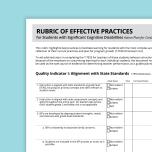
Significant Cognitive Disabilities, Behavior, Instruction, ARD/IEP Supports, Inclusion
Rubric of Effective Practices for Students with Complex Access Needs

Significant Cognitive Disabilities, ARD/IEP Supports, Instruction, Assistive Technology, Behavior, Inclusion
Administrator Companion Document to the Rubric of Effective Practices for Students with Complex Access Needs
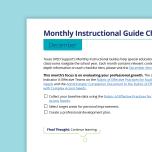
Significant Cognitive Disabilities
December Monthly Instructional Guide Checklist
Collect Your Baseline Data
This fall, you have been taking data on your students’ performance, but you may not have thought to gather data on your own performance. Now, as the first half of the school year closes, it is time to reflect on your use of good practices. Collect your baseline data using the Rubric of Effective Practices for Students with Complex Access Needs. Look over the lists of evidence in each component of the Administrator Companion Document. Then, note on the Rubric of Effective Practices in the “Initial Status” column whether the components under each indicator are “Evident” or “Not Evident” in your current practice. You can use the “Comments/Notes” to list the evidence you already have or note any gaps.
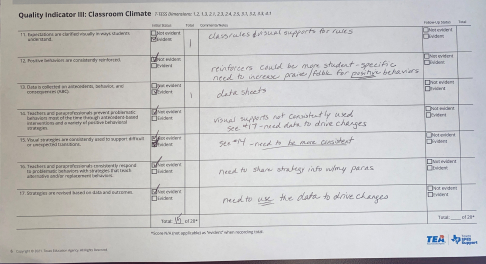
A teacher participates in self-scoring using the rubric. Shannon Beyer-Kaminski, 2023
Select Target Areas for Personal Improvement
Select just one or two areas where you would like to strengthen your skills. You may be tempted to make a lot of changes at once, but keep in mind that one or two small changes can have a great impact on student success. By focusing on just a few target areas, you will be more likely to maintain your motivation and momentum and you will have a greater chance of increasing your fidelity of implementation of the new practices.
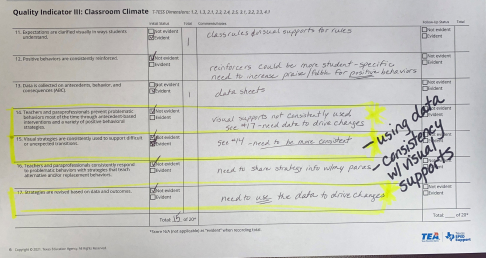
The teacher’s top two self-selected areas for growth. Shannon Beyer-Kaminski, 2023
Create a Professional Development Plan
After selecting your personal areas for improvement, create a professional development plan targeted for the areas you have chosen. There are many places to get the assistance needed to learn and grow your skills.
- Reach out to a colleague who excels in the areas you are interested in.
- Browse the online learning options from Texas SPED Support.
- Check the workshop listings at your ESC.
- Contact your ESC special education department for on-the-job coaching.
Write down your professional development tasks and set a timeline for when to get them done. Keep your rubric, and we will use it again when we check back in on your progress in the April Monthly Instructional Guide.
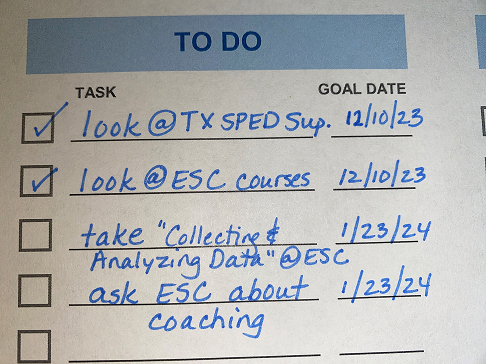
The teacher begins her professional development plan. Shannon Beyer-Kaminski, 2023
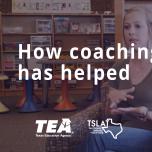
Autism, Instruction
How coaching has helped
Extend Your Learning
Learn more about Quality Indicator II: Effective Teams and the other Quality Indicators in the free online Building a Foundation series of courses.

Significant Cognitive Disabilities, ARD/IEP Supports, Instruction
Building a Foundation
Final thought: Continue learning
During this short month, reflect upon your professional performance and identify areas where you would like to improve your skills. Be a model to your students as a lifelong learner.
Looking Ahead
Enjoy the winter break! When you come back, we will explore ideas for how to enhance your instruction in the January Monthly Instructional Guide.
